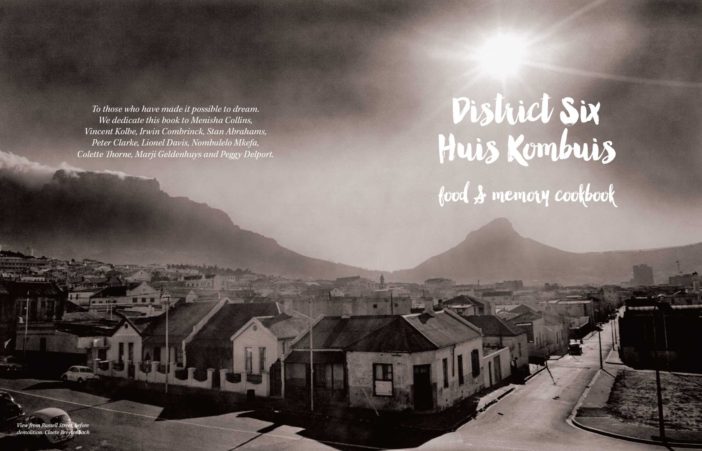As South Africa reflects on the 50th year since the declaration of District Six as a White Group Area in 1966, there was something good to celebrate this week with the launch of the District Six Museum’s Huis Kombuis Food and Memory Cookbook, a fitting tribute to the rich legacy of District Six.
The launch marks an important moment for the museum and those ‘District Sixers who’ have contributed to its development over ten years. Replete with storytelling, craft and recipes, the book places a spotlight on the stories of ex-residents from the District and how food was often the connecting element between families and communities forcibly removed from District Six. The beautifully layered book is published by the District Six Museum and Quivertree Publishers.
“The title, Huis Kombuis (directly translated from Afrikaans, means ’home kitchen’), was inspired by descriptions of kitchens in participants’ homes as being the heart of the home, its central social space. Here traditional recipes were brought to life in the rituals of cooking, eating and the sensory exchange at the kitchen table. Culinary rituals and home craft practices maintained and reinforced deep significances and connections with District Six as a place of home, family and community,” said Tina Smith, curator of the District Six Museum.
This is not a conventional cookbook. Rather, it is a story about food that is deeply rooted in the cultural practice and heritage that exists in the fragile memories of those who were forcibly displaced. The recipes and biographies in the book comprise facets of a collective memory of District Six that unlock complex narratives about family histories and cultural life in the District. For many, the story of food is inseparable from the spirit of place and a sense of belonging.
Stories shared during the group and individual oral history research processes were arranged into themes, threading together stories relating to duties in the kitchen, rituals of daily life, a weekly menu, urban food foraging, shopping, Sunday family meals and festive dishes during Christmas, Labarang, Easter and New Year celebrations.
These themes inspired the various chapters outlined in the book. There were many stories highlighting the importance of trust, respect and tolerance. Kanala, a word embodying a spirit of sharing and helping one another, gave expression to the spirit that characterised a close-knit community, its survival, resilience and humour.
Storytellers remembered how their mothers and grandmothers cobbled together a living through home industries or working ‘in service’. Cooking, baking, sewing and mending skills were honed during these everyday domestic practices, and became a valuable resource as they re-imagined the ‘ordinary’ in District Six.
These valued memories and traditions served as inspiration for drawing, painting, creative writing and remembrances of traditional dishes such as bobotie, tripe and trotters, crayfish curry, smoorsnoek and cabbage bredie, oumens onder die kombers, doek poeding, pickled fish and many more. The hand-crafted recipe cloths featured in the book are creative expressions of an oral tradition that has been passed on and therefore may not always reflect accurate measurements or methods, which makes them unique pieces of memory work.
Stitching these fragile pieces of the past together has opened up fresh possibilities for making new layers of memories. These recipes carry collective memories. In the physical absence of District Six, through memories of time, space and movement, this reawakening of the participants’ sensory experiences has given weight to an emptiness that was once unfathomable. We are shown the richness of this abundant knowledge by a textural emporium of maps, stories, archival material, family photographs, anecdotes, recipes and hand-stitchery.
The emphasis of the cookbook is not on what was lost but rather on affirming rich, diverse cultural values that have kept the memory of District Six relevant. Through remembering and reviving these traditional cuisines we celebrate the lessons of solidarity and share a part of humanity that gave District Six its unique spirit of place.






 WhatsApp us
WhatsApp us 

